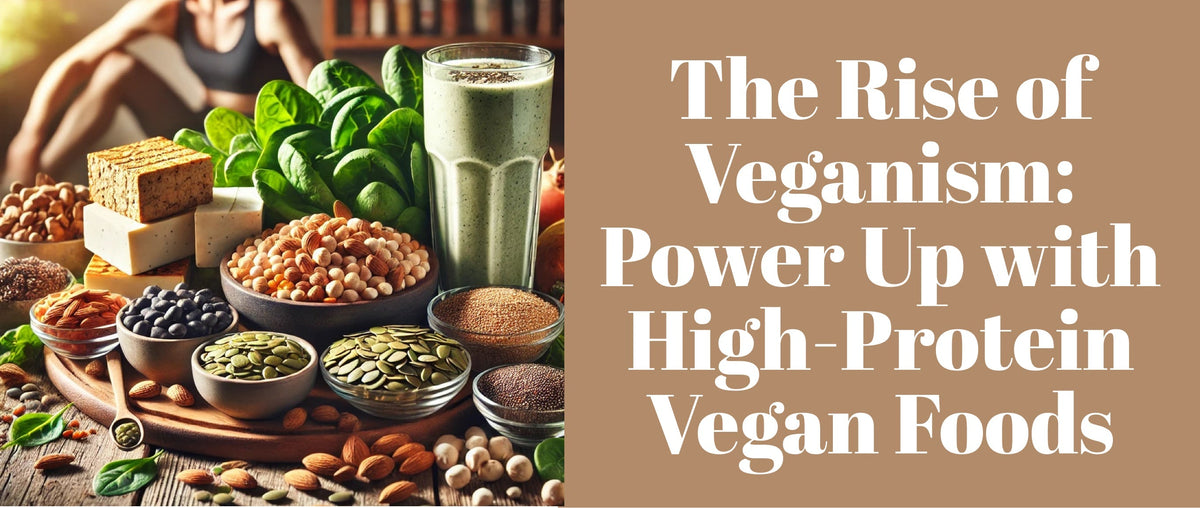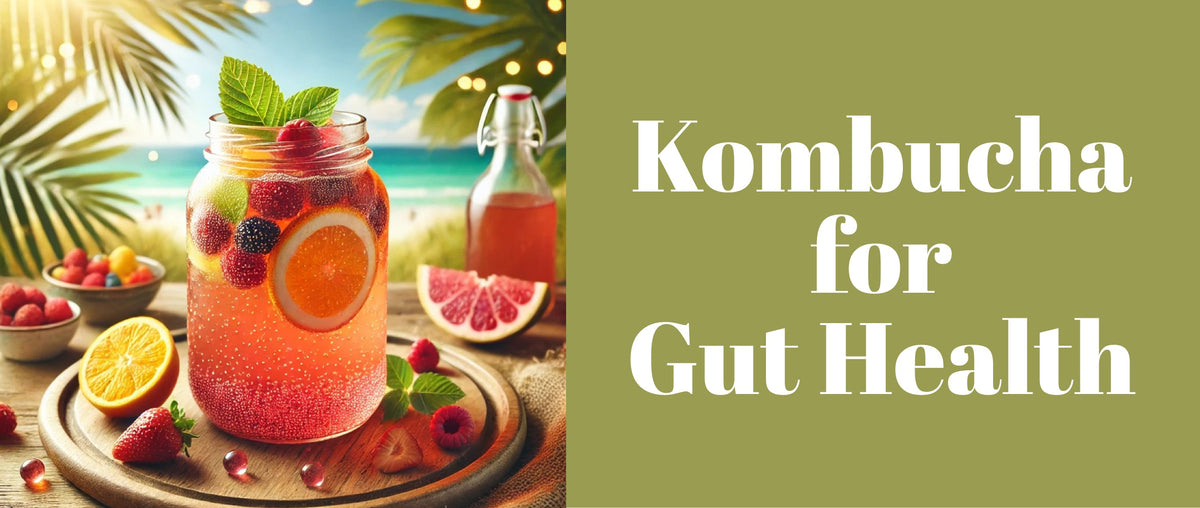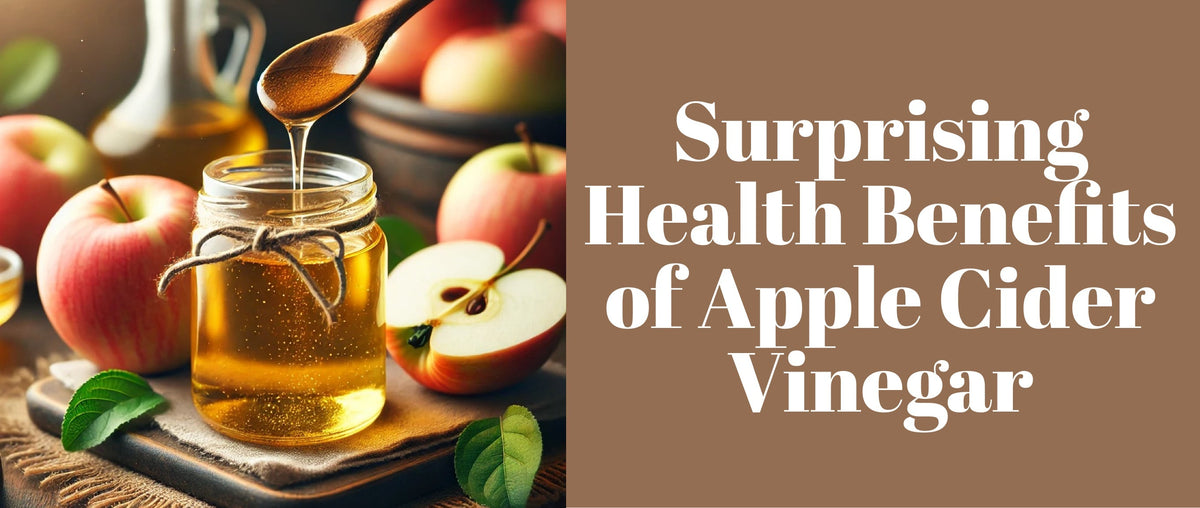Is Kombucha Safe for Kids?
Kombucha has become one of the most popular Healthy Drinks worldwide. With its tangy taste and probiotic benefits, many health-conscious parents wonder: Is Kombucha safe for kids?
While Kombucha offers probiotics, organic acids, and antioxidants, its alcohol, caffeine, and sugar content raise concerns when it comes to children’s health. Some parents also explore alternative cholesterol-free foods and Vegan products to keep their kids' diet healthy.
So, should children drink Kombucha? And if so, how much? Let’s break it down.
Key Takeaways
- Store-bought Kombucha is safer for kids than homemade versions due to regulated alcohol levels.
- Unpasteurized Kombucha can contain higher alcohol and bacteria levels, which may be unsafe for children.
- Kombucha contains caffeine and sugar, so serving sizes should be limited.
- Parents looking for Healthy Drinks may also consider apple cider vinegar drinks or plant-based options like oat milk for their kids.
- Kombucha is a fermented drink, meaning it contains live bacteria. While this can be beneficial, children with weak immune systems should avoid it.
What is Kombucha?
Kombucha is a fermented tea beverage made from:
- Black or green tea
- Sugar
- A SCOBY (Symbiotic Culture Of Bacteria and Yeast)
The fermentation process produces beneficial probiotics, enzymes, and organic acids, making Kombucha a popular choice among people following a vegan diet. It is often compared to apple cider vinegar drinks due to its similar acidic and probiotic nature.
Nutritional Breakdown of Kombucha
| Nutrient | Amount per 240mL (8 oz) | Benefits |
|---|---|---|
| Calories | 30 | Low in calories, good for weight-conscious diets |
| Sugar | 2-6g | Lower than soda but still contains natural sugars |
| Alcohol | <0.5% (commercial) | Homemade versions may have more |
| Caffeine | 10-25mg | Less than coffee but can still affect kids |
| Probiotics | Varies | Supports gut health |
How is Kombucha Made?
- Tea is brewed – Either black or green tea is steeped in hot water.
- Sugar is added – This helps the fermentation process.
- SCOBY is introduced – This culture of bacteria and yeast feeds on the sugar.
- Fermentation occurs – Over 7–14 days, Kombucha develops its signature fizz and tangy taste.
- Bottling & carbonation – Some brands add fruit flavors for taste.
Since Kombucha is naturally fermented, it contains small amounts of alcohol—which is why parents need to be cautious when giving it to children.
Many people in Kombucha India communities prefer making it at home, but homemade versions can have higher alcohol content, making them unsafe for children.
Also Read
Nutritional Profile of Kombucha
Kombucha is a fermented, probiotic-rich beverage that has gained immense popularity in kombucha India communities. It is often compared to other healthy drinks like apple cider vinegar drinks due to its digestive benefits.
But what exactly does Kombucha contain? Let’s break it down.
Key Nutrients in Kombucha
| Nutrient | Role in the Body | How it Affects Kids |
|---|---|---|
| Probiotics | Supports gut health & digestion | Can help with minor digestive issues but may cause bloating in some kids |
| Organic Acids | Detoxifies & balances pH | Helps break down toxins but can be too acidic for sensitive stomachs |
| B Vitamins | Boosts energy & brain function | Beneficial but present in small amounts |
| Antioxidants | Protects cells from damage | Helps with immunity but should be consumed in moderation |
| Caffeine | Enhances alertness | Can affect sleep and cause restlessness in kids |
| Alcohol | Produced naturally during fermentation | Store-bought Kombucha has <0.5% alcohol, but homemade versions may have more |
While Kombucha has many health benefits, it contains sugar, caffeine, and traces of alcohol, making moderation essential for kids. Parents may prefer plant-based alternatives like oat milk or probiotic-rich vegan products such as vegan butter and plant-based cheese to support their child's gut health.
Potential Health Benefits of Kombucha for Kids
Kombucha is often promoted as a cholesterol-free food with a range of benefits. Here’s how it may affect children’s health:
1. Supports Gut Health with Probiotics
Kombucha contains live probiotics, similar to fresh mozzarella and other fermented foods. Probiotics help:
- Balance good bacteria in the gut
- Improve digestion
- Reduce bloating and constipation
However, some children may experience mild stomach discomfort due to fermentation. In such cases, parents can explore dairy-free alternatives like oat milk or probiotic vegan items fat free cheese.
2. Strengthens Immunity
Kombucha is rich in antioxidants and vitamin C, which can help strengthen the immune system.
- Protects against infections and colds
- Reduces inflammation
- Supports overall well-being
3. Acts as a Detoxifying Agent
The organic acids in Kombucha (like acetic acid and gluconic acid) help the liver detoxify harmful substances. These acids are also found in apple cider vinegar drinks, making Kombucha a natural detoxifier for the body.
4. Helps Maintain a Healthy Weight
Unlike sugary sodas, Kombucha has low calories and sugar, making it a healthier alternative for kids. Many parents also look for other low-fat and fat-free options, such as:
- Fat-free butter
- Low-fat butter
- Cashew Butter (a great plant-based option)
By replacing high-calorie sugary drinks with Kombucha, kids can enjoy a healthier lifestyle.
Risks and Considerations for Children
While Kombucha offers probiotic benefits, it also has some risks for kids due to its alcohol, caffeine, and sugar content. Parents considering Kombucha for their children should be aware of these concerns.
1. Alcohol Content
Since Kombucha is a fermented drink, it naturally contains small amounts of alcohol.
- Store-bought kombucha contains less than 0.5% alcohol, which is within legal limits.
- Homemade kombucha can ferment longer and increase alcohol levels beyond safe limits for kids.
Safer Choice: If giving Kombucha to children, always choose store-bought, pasteurized brands.
2. Caffeine Content
Kombucha is made from black or green tea, both of which contain caffeine.
- A 240mL (8 oz) serving can have 10–25mg of caffeine.
- May cause restlessness, sleep disturbances, and hyperactivity in kids.
Safer Choice: Opt for Kombucha made from decaffeinated tea or limit servings to 2–4 ounces per day.
3. Sugar Content
Many Kombucha brands add sugar during fermentation and for flavoring.
- Some contain as much sugar as soda, leading to:
- Weight gain
- Cavities
- Blood sugar spikes
Safer Choice: Choose low-sugar kombucha or try healthy drinks like:
- Oat milk
- Apple cider vinegar drinks
- Plant-based cheese smoothies
4. Potential Contaminants
If not properly prepared, Kombucha may develop harmful bacteria and mold.
- Homemade kombucha is more likely to be contaminated in unsanitary environments.
- Unpasteurized kombucha may carry bacteria that causes food poisoning in kids.
Safer Choice: Always buy pasteurized, commercial kombucha.
Also Read
Age Recommendations
| Age Group | Kombucha Recommendation | Alternative Healthy Drinks |
|---|---|---|
| Under 1 Year | Not recommended | Oat milk, coconut water |
| 1–4 Years | Avoid or very small amounts | Cashew Butter smoothies, apple cider vinegar drinks |
| 4–12 Years | 2–4 oz/day | Low-sugar kombucha, dairy-free yogurt |
| Teenagers (13+) | Up to 8 oz/day | Fresh mozzarella, plant-based cheese snacks |
Tip: For sensitive stomachs, replace kombucha with vegan butter, unsalted butter, or low-fat butter.
Alternatives to Kombucha for Kids
1. Yogurt (Dairy & Dairy-Free)
- Natural probiotics
- Helps digestion & immunity
- Try oat milk yogurt, cashew-based, or almond milk yogurt
2. Fermented Foods
- Fresh mozzarella
- Unprocessed Cheese
- Plant-based cheese (great for vegan diet)
- Kimchi & sauerkraut
3. Apple Cider Vinegar Drinks
- Supports gut health
- Mix with oat milk or fresh juice
- Low sugar alternative to kombucha
4. Dairy-Free Kefir
- More probiotics than kombucha
- Available in cashew butter or coconut versions
5. Low-Sugar Smoothies
- Blend plant-based cheese, oat milk, fruits, and low-fat butter
- Adds probiotics & fiber
Tip: Dilute kombucha with oat milk or water for a milder taste.
Conclusion
Kombucha is a fermented, probiotic-rich beverage popular with health-conscious families. Though it offers gut health benefits, parents must consider its alcohol, caffeine, and sugar content before giving it to kids.
Do you enjoy vegan food? We have a list of vegan restaurants in India to help you find delicious options in your area!












